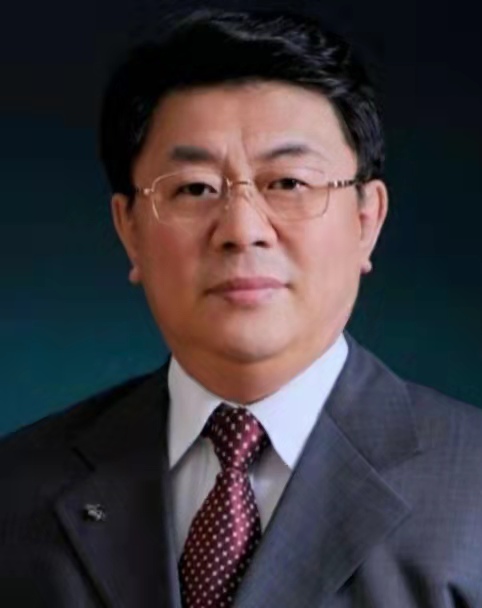Qu Yi Feng
Qu Yifeng, styled Yunyang, also known as Runze, Longyi, Shan Zuo Xiaoming, and Master of Beiqin Studio. Born in June 1953 in Yantai, Shandong Province. Member of the China Society for Soft Science Research, Member of the China Association of Photojournalists, Member of the China Society for Elderly Calligraphy and Painting Research; Standing Director of the China Qi Baishi Art Research Institute, Standing President of its Heilongjiang Branch, Honorary President of the China Academy of Calligraphy and Painting Art Heilongjiang Branch, Consultant of the Xinhua Academy of Calligraphy and Painting Heilongjiang Branch; Member of the Heilongjiang Provincial Advisory Committee on Science and Technology Economics, Research Fellow at the Heilongjiang Academy of Social Sciences, and an expert entitled to special government allowances from the Heilongjiang Provincial People's Government.
Formerly served as Secretary of the Production and Administrative Departments of the Liuhe May 7th Cadre School in Heilongjiang Province; Editor of "Production Brief" and "Lihe Newsletter"; Deputy Chief Editor of "Heilongjiang Youth" and "New Youth" magazines under the Communist Youth League Heilongjiang Provincial Committee; Deputy Secretary of the CPC Committee of Hulin County; Director of the Office and the Foreign Economic Research Division, Member of the Party Leadership Group, and Deputy Director of the Development Research Center of the Heilongjiang Provincial People's Government; Chairman of the Heilongjiang Provincial Economic Development Promotion Association, the Heilongjiang Provincial Rural Labor Development Promotion Association, and the Heilongjiang Provincial Research Association for Export-Oriented Enterprises.
Since childhood, influenced by family tradition, he began with grinding ink and studying calligraphy models, and after entering primary school, started copying classic scripts and practicing calligraphy, continuing his artistic practice for decades. In the 1990s, he became a disciple of the renowned calligrapher and painter Wang Tian. In recent years, he studied traditional Chinese painting under Wu Jingshan, a direct disciple of Qi Baishi, President of the China Qi Baishi Art Research Institute and a distinguished calligrapher and painter, becoming a third-generation inheritor of the Qi Baishi art school. His calligraphy is primarily in running and cursive scripts, with additional study of clerical and seal scripts. His calligraphy and painting works have been published in numerous national and Hong Kong-based journals and magazines. In 2017, he received the award "Outstanding Calligrapher and Painter of Qi Baishi's Legacy" at the Qi Baishi Legacy Calligraphy and Painting Invitational Exhibition; in 2019, his works were selected for the Chinese anthology "Masterpieces of Calligraphy and Painting" featuring one hundred renowned Chinese calligraphers and painters; won the Silver Award at the "Belt and Road" Calligraphy and Painting Grand Prix; won the Silver Award at the "Celebrating 70 Years: Dreaming with the Motherland" Invitational Exhibition of Chinese Master Painters (Summer Edition) and was honored with the title "Most Popular Chinese Painter"; in 2020, he received the Gold Award at the 20th National "Lushan Cup" Calligraphy and Painting Competition and was awarded the title "Celebrating the Classics—Outstanding Figure in the Inheritance of Chinese Calligraphy and Painting."
He has published hundreds of academic papers, news articles, literary works, and online blogs at domestic and international conferences and in newspapers. He has received multiple national and provincial awards, including the China Development Research Award. He and his works have been included in numerous major reference works such as "Collection of Social Science Achievements in China's New Era," "Chinese Experts Dictionary," "Dictionary of China's Renowned Scholars and Experts," "China's Hundred Industries Leadership Talents," "21st Century Talent Database," "Chinese Talent Dictionary," "China Expert Talent Database," and "Selected Essays from Heilongjiang."
His major publications include: "Collected Works of Yifeng," "Border Trade: Banking and Foreign Exchange Management," "Research on Heilongjiang’s Foreign Economy," "Learning, Absorbing, and Cooperating—Studies on Korean Science and Technology and Economy," "Regional Orientation and Strategic Choice—Northeast Asian Regional Economic Cooperation and Heilongjiang," "GATT and Heilongjiang’s Economy," and others. He has also co-edited works such as "Comprehensive Dictionary of China's Reform and Opening-Up," "Great Anthology of China's Reform and Opening-Up," "China's Regional Development and Prospects," "Contemporary Heilongjiang," and "Essentials of Business."

 中文
中文  en
en 
